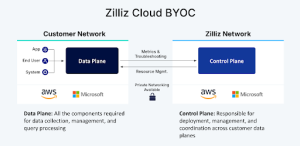Residential construction project managers shoulder the responsibility of overseeing every aspect of a project, from inception to completion. While this role offers immense opportunities for growth and accomplishment, it also presents its fair share of challenges. To ensure smooth progress and successful outcomes, it’s crucial for residential construction project managers to steer clear of common pitfalls. In this article, we’ll explore some prevalent mistakes to avoid in this demanding yet rewarding profession.
1. Inadequate Planning and Preparation
One of the most significant mistakes a residential construction project manager can make is to skimp on planning and preparation. Rushing into a project without a comprehensive plan can lead to delays, cost overruns, and quality issues. Before breaking ground, it’s essential to thoroughly assess the scope of the project, establish clear objectives, and develop a detailed timeline and budget.
2. Poor Communication
Effective communication is the cornerstone of successful project management, yet it’s a common area where mistakes occur. Failure to communicate clearly and consistently with team members, clients, subcontractors, and suppliers can result in misunderstandings, conflicts, and delays. Residential construction project managers must prioritize open and transparent communication channels to ensure everyone is on the same page throughout the project lifecycle.
3. Underestimating Risk Management
Every construction project entails inherent risks, from inclement weather to supply chain disruptions. Ignoring or downplaying these risks can have dire consequences for the project’s timeline, budget, and overall success. Residential construction project managers must conduct thorough risk assessments and develop mitigation strategies to address potential threats proactively. Regular monitoring and adjustment of risk management plans are essential to minimize unforeseen complications.
4. Neglecting Quality Control
Maintaining high standards of quality is non-negotiable in residential construction. However, some project managers fall into the trap of prioritizing speed and cost savings over quality craftsmanship. Cutting corners or overlooking quality control measures can lead to rework, customer dissatisfaction, and damage to the builder’s reputation. A vigilant approach to quality assurance throughout every phase of the project is essential to deliver results that meet or exceed client expectations.
5. Mismanaging Budget and Resources
Effective budget management is critical for the financial success of a residential construction project. Project managers must accurately estimate costs, track expenses diligently, and make informed decisions to keep expenditures within budgetary constraints. Additionally, resource allocation, including labor, materials, and equipment, should be optimized to maximize efficiency and minimize waste. Failure to manage budgets and resources effectively can jeopardize profitability and project viability.
6. Ignoring Regulatory Compliance
Navigating the complex landscape of regulatory requirements is a fundamental responsibility of residential construction project managers. From building codes to zoning regulations, adherence to legal and regulatory standards is paramount to avoid costly penalties, delays, and legal disputes. Project managers must stay informed about evolving regulations and ensure that all aspects of the project comply with applicable laws and permits.
7. Overlooking Stakeholder Engagement
Successful residential construction projects rely on collaboration and engagement with various stakeholders, including clients, architects, engineers, and local authorities. Neglecting to involve key stakeholders in decision-making processes or failing to address their concerns can lead to conflicts and project setbacks. Project managers should foster strong relationships with stakeholders, solicit feedback, and keep them informed of project progress to foster a sense of ownership and alignment.
Conclusion
As residential construction project managers navigate the complexities of their roles, avoiding common mistakes is essential for achieving project success. By prioritizing thorough planning, effective communication, risk management, quality control, budget discipline, regulatory compliance, and stakeholder engagement, project managers can steer their projects toward favorable outcomes. Continuous learning, adaptability, and a commitment to excellence are key principles that can guide project managers in avoiding pitfalls and delivering exceptional results in the dynamic field of residential construction.




